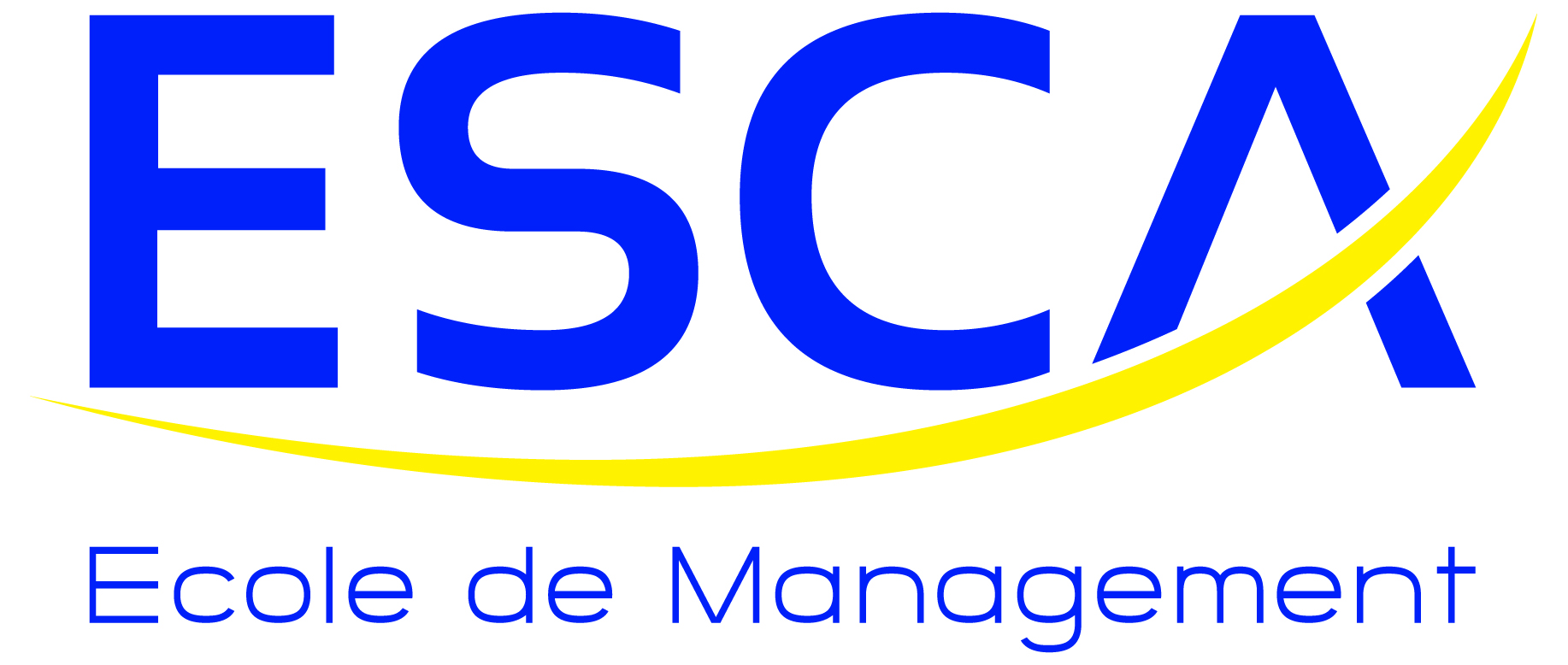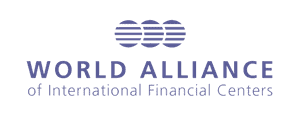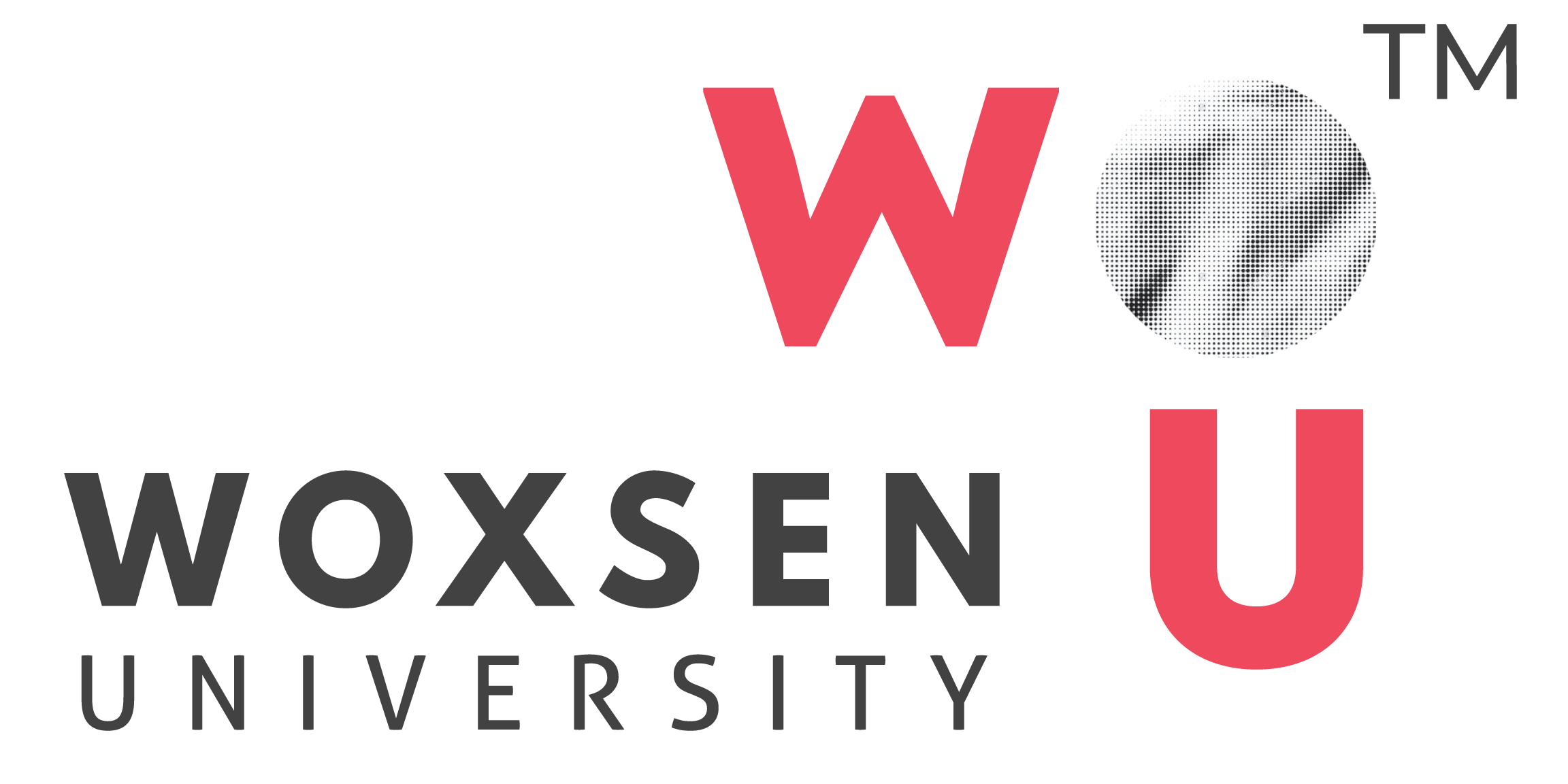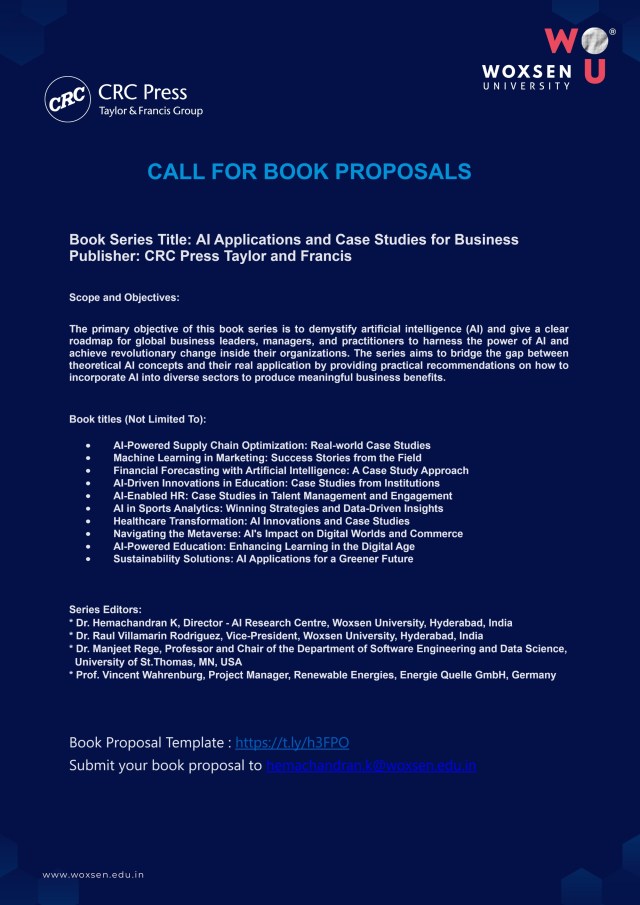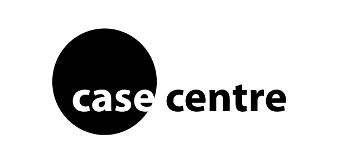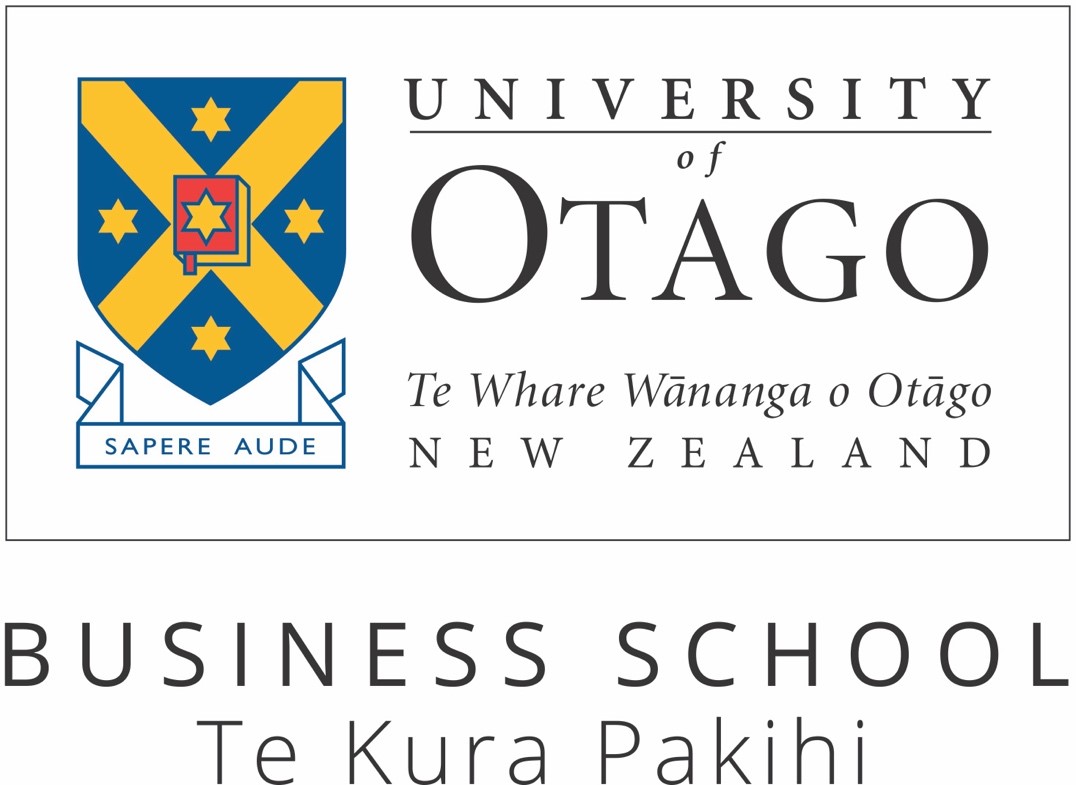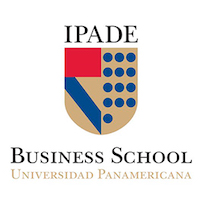Book Series Title: AI Applications and Case Studies for Business
Publisher: CRC Press Taylor and Francis
Relevant dates for events/deadlines for calls: 30th January 2024
Scope and Objectives:
The primary objective of this book series is to demystify artificial intelligence (AI) and give a clear roadmap for global business leaders, managers, and practitioners to harness the power of AI and achieve revolutionary change inside their organizations. The series aims to bridge the gap between theoretical AI concepts and their real application by providing practical recommendations on how to incorporate AI into diverse sectors to produce meaningful business benefits.
Are you a pioneer in the world of Artificial Intelligence, passionate about its transformative potential for businesses? Do you have groundbreaking insights, practical experiences, and valuable case studies to share with the global community?
We invite you to submit your book proposal for the prestigious “AI Applications and Case Studies for Business” series, published by CRC Press Taylor and Francis.
Why Choose Our Series?
- Explore the Latest AI Trends: Our series focuses on the most cutting-edge developments in AI, providing readers with the freshest insights and real-world applications.
- Reach a Global Audience: CRC Press Taylor and Francis has a vast international readership, ensuring that your work gets the recognition it deserves.
- Show Your Expertise: Contribute to the advancement of knowledge in the AI field by sharing your expertise and case studies.
- Publish with a Trusted Name: Join the ranks of distinguished authors who have published with CRC Press Taylor and Francis.
Submission Guidelines:
To initiate a discussion on any proposed work, we request our authors to share detailed information about the work in the attached Book Proposal Form(BPF) for an internal and external review process. Please complete the BPF with as much detail as possible and submit it to us with a detailed author/editor bio (including an updated publications list). Also, do share a detailed table of contents. In case a sample chapter is available for review, sharing that will help us to understand the proposed work better. In case of an edited volume, please also provide a list of tentative contributing authors along with their affiliations. The inclusion of at least 60% global contributors is required as the book will be considered for our global book publishing programme.
Book Proposal Template : https://t.ly/h3FPO
Submit your book proposal to hemachandran.k@woxsen.edu.in
Some of the book Topics Listed here to apply ( But not limited to):
· AI-Powered Supply Chain Optimization: Real-world Case Studies
· Machine Learning in Marketing: Success Stories from the Field
· Financial Forecasting with Artificial Intelligence: A Case Study Approach
· AI-Driven Innovations in Education: Case Studies from Institutions
· AI-Enabled HR: Case Studies in Talent Management and Engagement
· AI in Sports Analytics: Winning Strategies and Data-Driven Insights
· Healthcare Transformation: AI Innovations and Case Studies
· Navigating the Metaverse: AI’s Impact on Digital Worlds and Commerce
· AI-Powered Education: Enhancing Learning in the Digital Age
· Sustainability Solutions: AI Applications for a Greener Future
Who Should Submit?
We welcome submissions from:
- Business Leaders
- AI Researchers and Developers
- Academicians
- Industry Experts
- Analytics Practitioners
For inquiries or more information, please contact us at hemachandran.k@woxsen.edu.in
Start Your Journey with CRC Press Taylor and Francis Today!
Series Editors:
- Dr. Hemachandran K, Director – AI Research Centre, Woxsen University, Hyderabad, India
- Dr. Raul Villamarin Rodriguez, Vice-President, Woxsen University, Hyderabad, India
- Dr. Manjeet Rege, Professor and Chair of the Department of Software Engineering and Data Science, University of St.Thomas, MN, USA
- Prof. Vincent Wahrenburg, Project Manager, Renewable Energies, Energie Quelle GmbH, Germany


